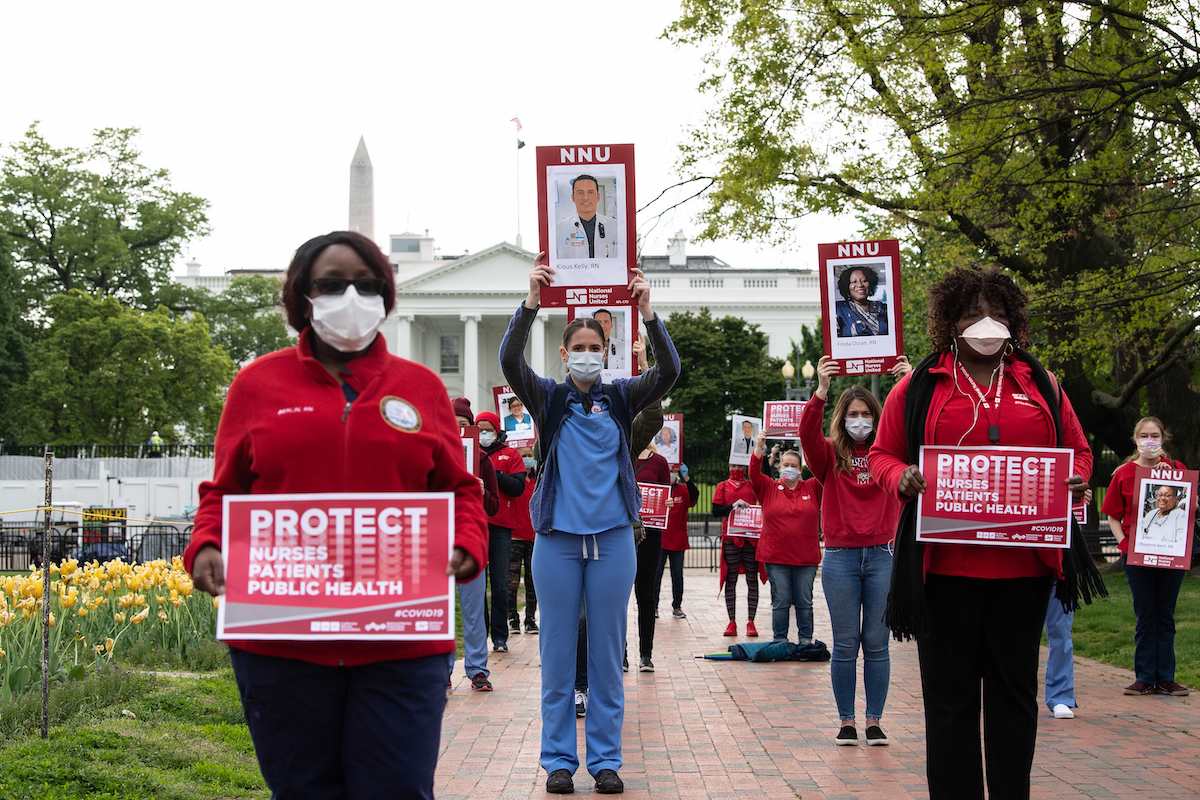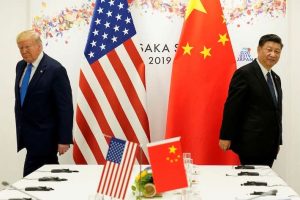For all the “We’re all in this together” rhetoric that many political leaders have adopted as a rallying cry during the Covid-19 pandemic, each passing day highlights the shallowness of the slogan.
Just as nationwide lockdowns have exposed vast gaps between the richest and poorest in every society – and even between different sections of the middle – so it has also exposed gaps between countries. Already, some countries have declared the crisis over. Some are inching cautiously out of lockdown and for others the storm has yet to pass.
And more than ever before, lockdown has exposed the fact that most political assumptions about the developed world vis-a-vis the developing world are illusory. Nothing better illustrates this than aid.
As the pandemic gripped countries in Europe, aid arrived from unexpected quarters. Turkey sent medical aid to Spain and Italy, both of them wealthier countries with far larger GDPs. Russia sent a planeload of much-publicized aid to Italy, prompting one of NATO’s top military commanders, Tod Wolters, to express “concern.”
UAE aid
Only this week, the United Arab Emirates sent out the latest shipment of a total of, so far, more than 450 metric tons of aid to 27 countries on every continent. In absolute numbers, it has donated more aid than almost any other country.
The destinations are equally intriguing: The UAE was one of the first to donate medical equipment to China shortly after the outbreak, and then helped the UK set up its vast emergency field hospital in London. The UAE also sent aid to Italy and other European countries.
And, of course, China – a rich but unevenly developed country – has sent equipment and medical experts to Italy, Spain, France and elsewhere in Europe.
Seen from a 20th-century perspective, this is all rather puzzling. How is it that countries that, until comparatively recently, were considered part of the Third World (or, in the case of Russia and China, the rarely used “Second World”), are sending aid to the First World?
The question is part of the problem. The established political frameworks of the 20th century no longer fit the reality. All that can be said with certainty is that the old paradigms of developed and developing countries no longer apply. The lines between the West and “the rest” are blurred now.
Covid imbalance
The prime minister of India alluded to this at last month’s virtual meeting of the Group of Twenty. Why, Narendra Modi wondered, do the G20 countries have 80% of the world’s GDP, but also “90% of the global Covid-19 cases and 88% of the deaths?” As the G20 accounts for only two-thirds of the world’s population, the imbalance is even more striking.
The phenomenon of non-Western countries offering aid is not limited to this crisis. The largest donor of foreign aid clearly is the United States. But the Organization for Economic Cooperation and Development’s (OECD’s) Development Assistance Committee, which monitors international development among the world’s biggest aid donors, has as its second-largest grouping of countries outside of Europe four member states of the Gulf Cooperation Council. They are: Saudi Arabia, the UAE, Kuwait and Qatar.
Clearly, there has been a shift. But explaining why is proving difficult.
One way is to note certain factors that could explain the different patterns followed by different countries during the pandemic. For example, the population’s acceptance of government surveillance in Asian countries meant contact tracing was able to start early and was extensive.
Then there’s the anomalous explanation. Analysts still operating on the accepted assumption that Western countries do better than others will note the high death toll in the US and look for an anomaly – which in this case is the man in the White House.
But the rise of the rest at the expense of the West is not an anomaly. The last half-century has shown that following the “Western model” of liberal democracy and capitalism is not the only way for a country to be successful. Small countries like Singapore and the UAE have forged their own models and have done it so well that others are emulating them. More populous countries, particularly Turkey, South Korea and especially China, also have their own distinct systems that they believe could work elsewhere in the world.
It has taken only weeks for the pandemic to reveal with stark clarity that the old political certainties have fallen away. Several non-Western political structures may be vying to replace them but ultimately what it all amounts to is a few scattered success stories. At a time when the West looks tired and sclerotic and is consumed by internal division, no new bloc of countries has emerged to promote an alternative to the Western model.
So if the West indeed is fading away with fatigue, it is equally true that “the rest” is not yet ready to replace it. The pandemic has starkly shown us this. After it subsides, we shall have to more deeply ponder the ramifications of this development.
Faisal Al Yafai is currently writing a book on the Middle East and is a frequent commentator on international TV news networks. He has worked for news outlets such as The Guardian and the BBC, and reported on the Middle East, Eastern Europe, Asia and Africa.
This article was provided by Syndication Bureau, which holds copyright.
























